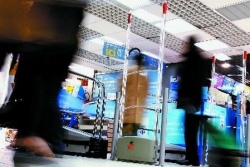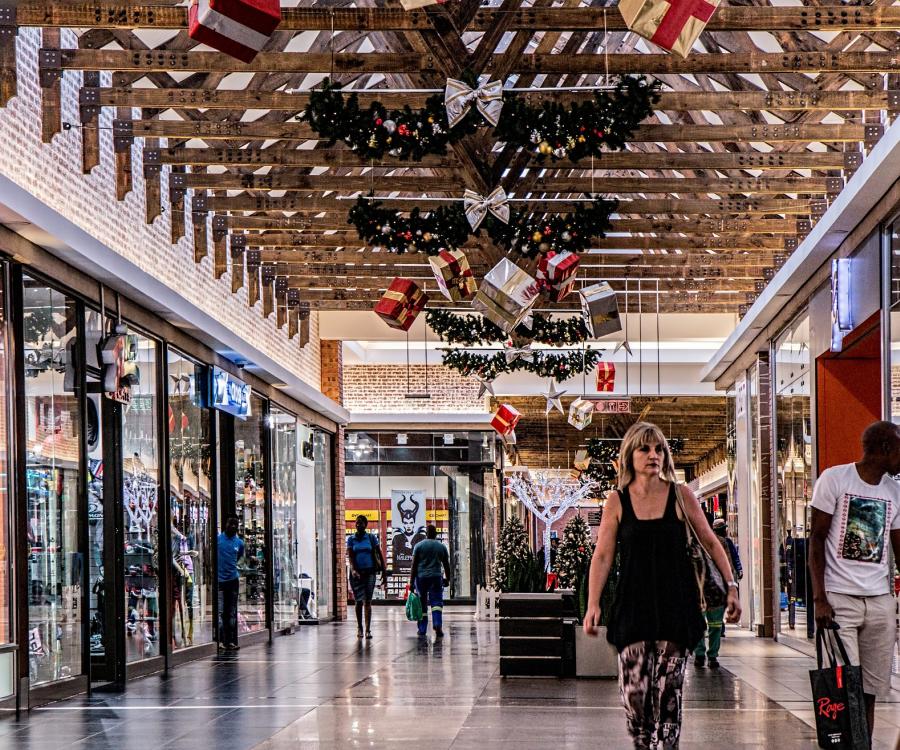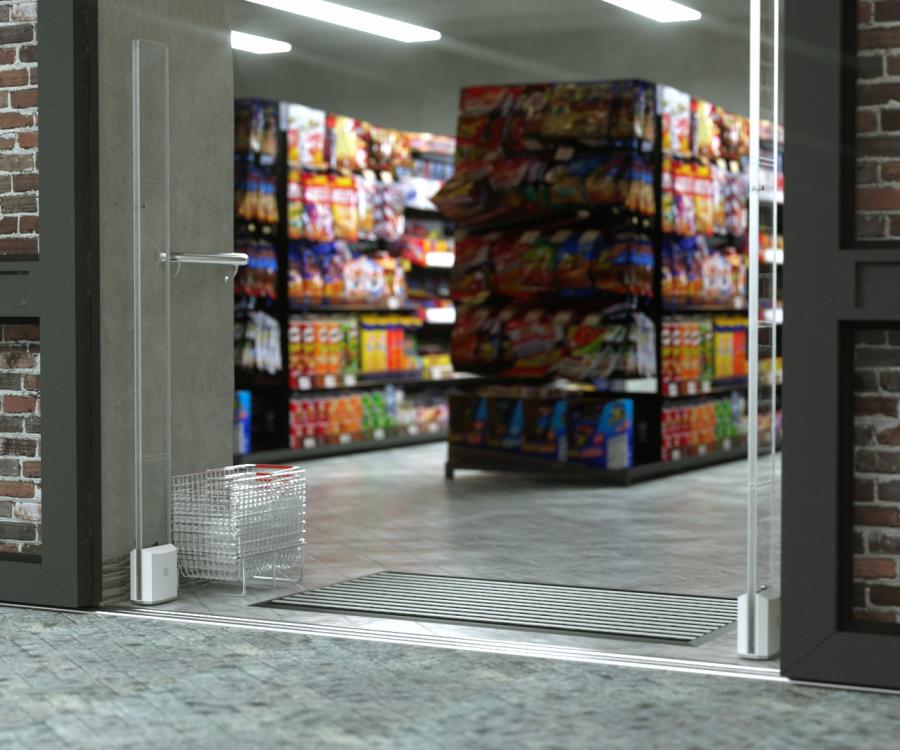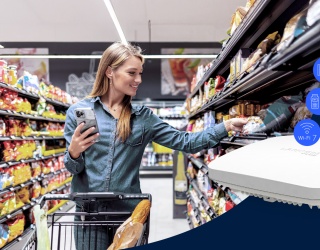Doing nothing is not an option, because if competitors arm themselves, thieves will go where the risk is lowest. Small speciality stores are often the ones left holding the bag.
There is no specific shoplifter type. While some customers steal because they are in personal financial distress, there is also the well-off person, who specifically targets valuable branded goods. Organized theft by two or more offenders is increasing as is merchandise theft in front of the store. Retailers in Germany spend over five billion Euros on stolen goods and theft prevention each year, according to the EHI, a research facility in Cologne, Germany.
The British Centre for Retail Research in Nottingham, calculated similar numbers in its yearly poll of the largest commercial enterprises. Based on it, theft accounts for 1.17% of trading turnover. Worldwide, retail is set back € 84 billions by merchandise losses. In times of economic crisis, thieves strike more often: “A third of this increase in shoplifting, the polled retailers attribute to the economy,“ explains Professor Joshua Bamfield, Director of the British Institute and author of this study. Not just worldwide, but especially in Germany and Europe the growth rate rose to a new record high since the start of the study in 2001.
Staff and customers as offenders
According to Bamfield, the main cause for merchandise loss is shoplifting: 53.6 percent are attributed to customers, 25.7 percent of goods disappear because of dishonest employees. The remainder is caused by internal errors (15.3 percent) and vendors (5.4 percent). While goods stolen by customers on average cost €94 per offense, dishonest employees struck 20 times higher at an average of €1.858.
Theft by in-house employees is a delicate subject. You do not want to engender any mistrust, but surveys show that particularly employees who have been with their company longer than five years, are disproportionately highly involved in offenses. This group knows the business very well and knows all the controlling loop holes. “Trust is good, control is better,” you would think. It might be better to strengthen team spirit, because motivated employees cheat less.
Taking a look at their own habits, many retailers admit they rarely get suspicious of customers. That is how customers can disappear with many clothing items into fitting rooms without any objections. If you keep talking with your customer, you signal to them: “You are not alone.” Admittedly, often there is not enough staff in the store to keep an eye on everything. That is all the more reason to depend on technology or external detectives.
Security measures for different products
One means of security are display cabinets, but here the customer can not touch the item.
Products in locking boxes with shelf brackets are freely accessible, but they take up a lot of room on the rack. There are lacing systems, which are outfitted with safety locks. Electronic security leashes such as GPS navigational devices or pulsing monitors, are suited for expensive products, which the customer can touch and try. An alarm signal sounds off, once somebody cuts through the leash. Some security leashes also go off at the electronic exit gate. The leash keeps merchandise on the floor and supplies electrical equipment with power. A small central processing unit controls up to 10 satellites with 5 channels each – or 50 items – up to a 110 yard distance. Security leashes also work with large objects like bicycles or sport equipment, located outside the store and unsupervised.
Especially when it comes to clothing articles, security systems cannot be perceived as an obstacle by the consumer. Hard tags, which are often used in retail, can be annoying when you try on clothes. Hard tags can also damage goods and can detract from the look of the sales floor. The selection of elastic labels is increasing. Hard tags are also available with security ink. If the thief removes the label, the merchandise is soaked with indelible ink. Even after a longer period of time, the ink does not dry on the security label.
Cameras discourage and keep records
Deterrence is a great method of prevention. This includes visible camera equipment, security labels and signs that inform about legal consequences. High resolution cameras should be able to view all important areas and provide detailed documentation of all incidents- not just inside the store, but also at the receiving dock and at the warehouse. A person can be positively identified and theft or muggings conclusively documented. It is also possible to link check-out data and video image. Some time ago, Lidl and other food store chains however made the headlines, because they secretly spied on their check-out staff with cameras. Stakeouts are only allowed, if employees have been informed about the technology beforehand, restrooms are of course off-limits.
Source tagging is getting more and more important
The so-called source tagging is a particularly effective means of theft prevention. The safety device will be attached to the product or its packaging already at the source, meaning the manufacturing place, not at the store. In source tagging, AM tags (i.e. akusto- magnets) and radio frequency (RF) are still the two basic technologies. They are technically mature and the technical system requirements are defined. Each year at the Trade Fair Düsseldorf EuroCIS, the EHI awards groundbreaking technical solutions. This time, the German fashion brand Gerry Weber got the award for introducing a RFID solution in conjunction with security systems.
Security systems with RFID
RFID stands for radio-frequency-identification, a technology for contactless article detection along the entire logistics chain all the way to the check-out counter and store exit. Gerry Weber uses a novel RFID label by Avery Dennison, which is integrated in the care label and can survive up to two washing cycles.
Said Gerhard Weber, Chairman of Gerry Weber, at the Award ceremony in Düsseldorf: “The decision to rollout RFID is a real milestone for us. We invite all other apparel manufacturers to participate in a broad introduction of RFID and thus enable retailers to lower costs as well as increase transparency and efficiency.“ The textile RFID-care labels are sewn into the product at the production plant, i.e. at the source.
At the EuroCIS, the Tailorit company from Düsseldorf introduced a study, whereby clothing retailers can save up to 0.5 percent of their sales volume with source tagging. The footwear industry is already farther ahead in terms of source tagging and so more cost effective than clothing retailers.
No silver bullets
Vendors agree: Retail has a multitude of excellent, effective technical and organizational measures at its disposal in the fight against losses. Yet there are no “silver bullets“ and generally cost comes before earnings. False alarms are the enemy of every security system. If it often bleeps for no reason, staff does not respond any more. The vendor needs to also consider maintenance for his/her security investment.
René Schellbach










